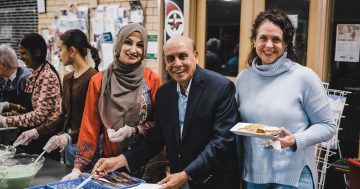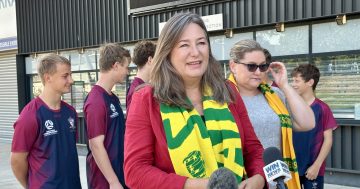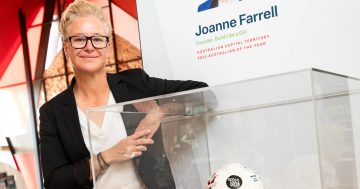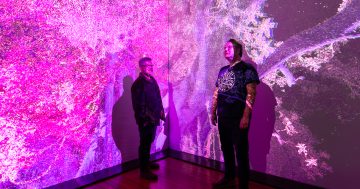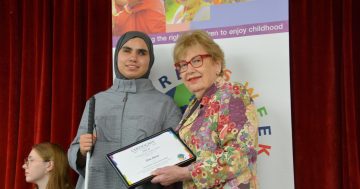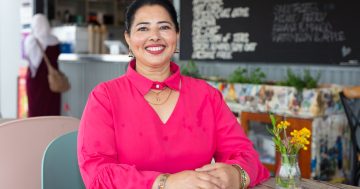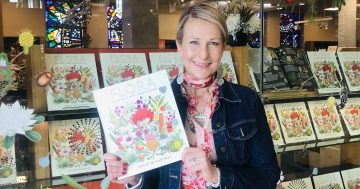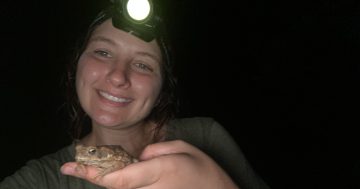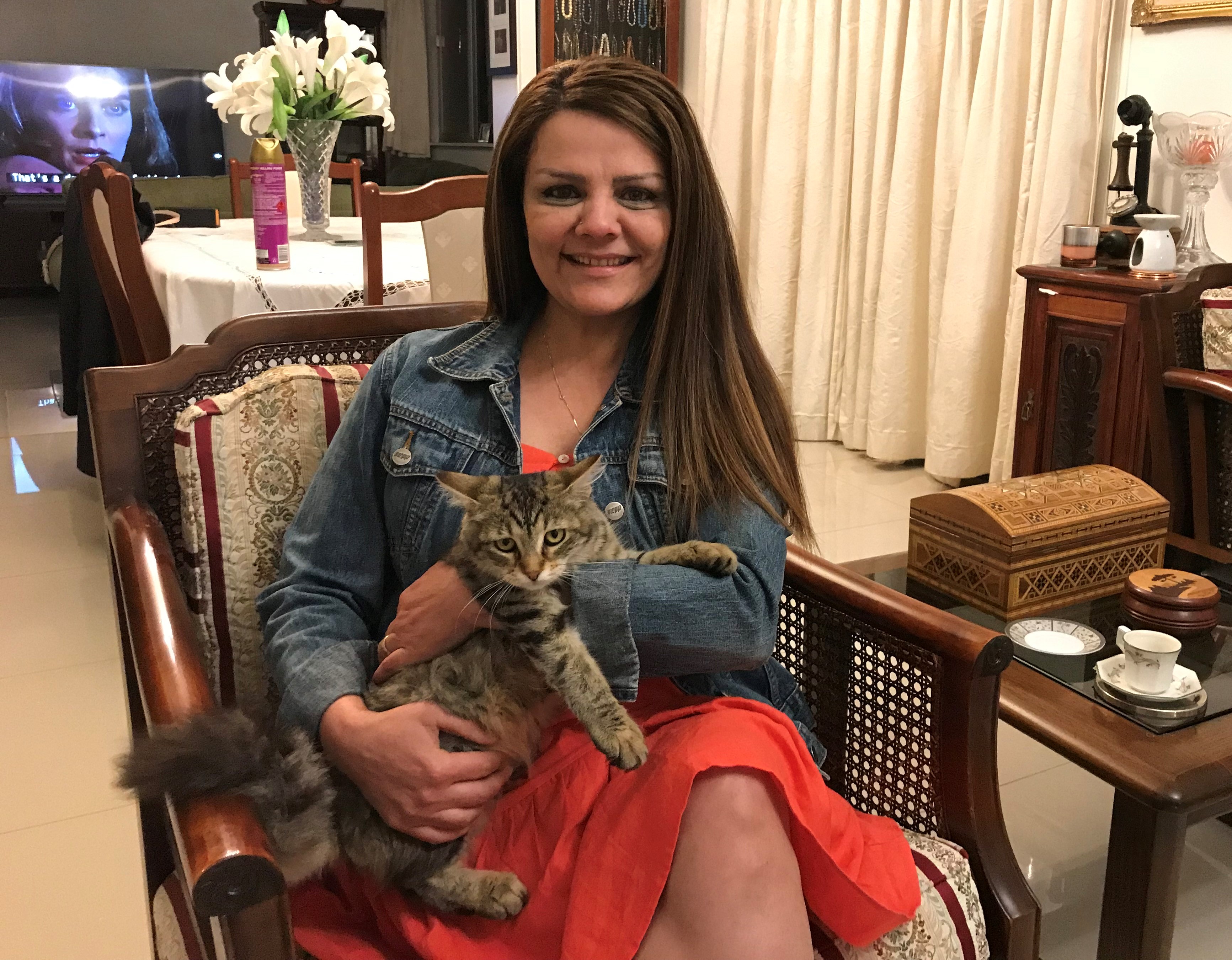
Maya Awik Berjaoui with Lucy, one of her two pet cats. Photo: Elizabeth Masters.
As president of the Arab Australia Friendship Society, Maya Awik Berjaoui is committed to helping new refugees find their feet in Canberra.
Her inspiring life extends to teaching Arabic to Australian officials and working full time at the United Arab Emirates (UAE) Embassy.
She takes it all in her stride, with a welcoming smile and warm sense of humour.
Born in Tripoli, Lebanon, Maya came to Canberra 18 years ago to join her husband Mohammed.
“My mum came with me when I first travelled to Australia to make sure I was moving to a safe country,” she says. “She has now visited me three times and she loves Australia.”
Fluent in French and Arabic, Maya struggled with English when she arrived in Canberra. It is this experience that helps her understand the difficulties new arrivals face.
Today, she offers a helping hand to women forced to flee their homes and leave friends, family and belongings behind.
“When I first arrived here I was lucky because I had my husband’s support and he had lived here for many years. He encouraged me to speak English and learn the culture,” she says.
“I try to assist new arrivals in the same way. I help them enrol in English lessons and find housing and schools for their children. I also encourage them to study at Canberra Institute of Technology (CIT) or even at university, to help them find a better job.”
Those helped by the society include people fleeing from Iraq, Syria, Yemen and Lebanon. Christian Iraqi families displaced when ISIS attacked have also received support.
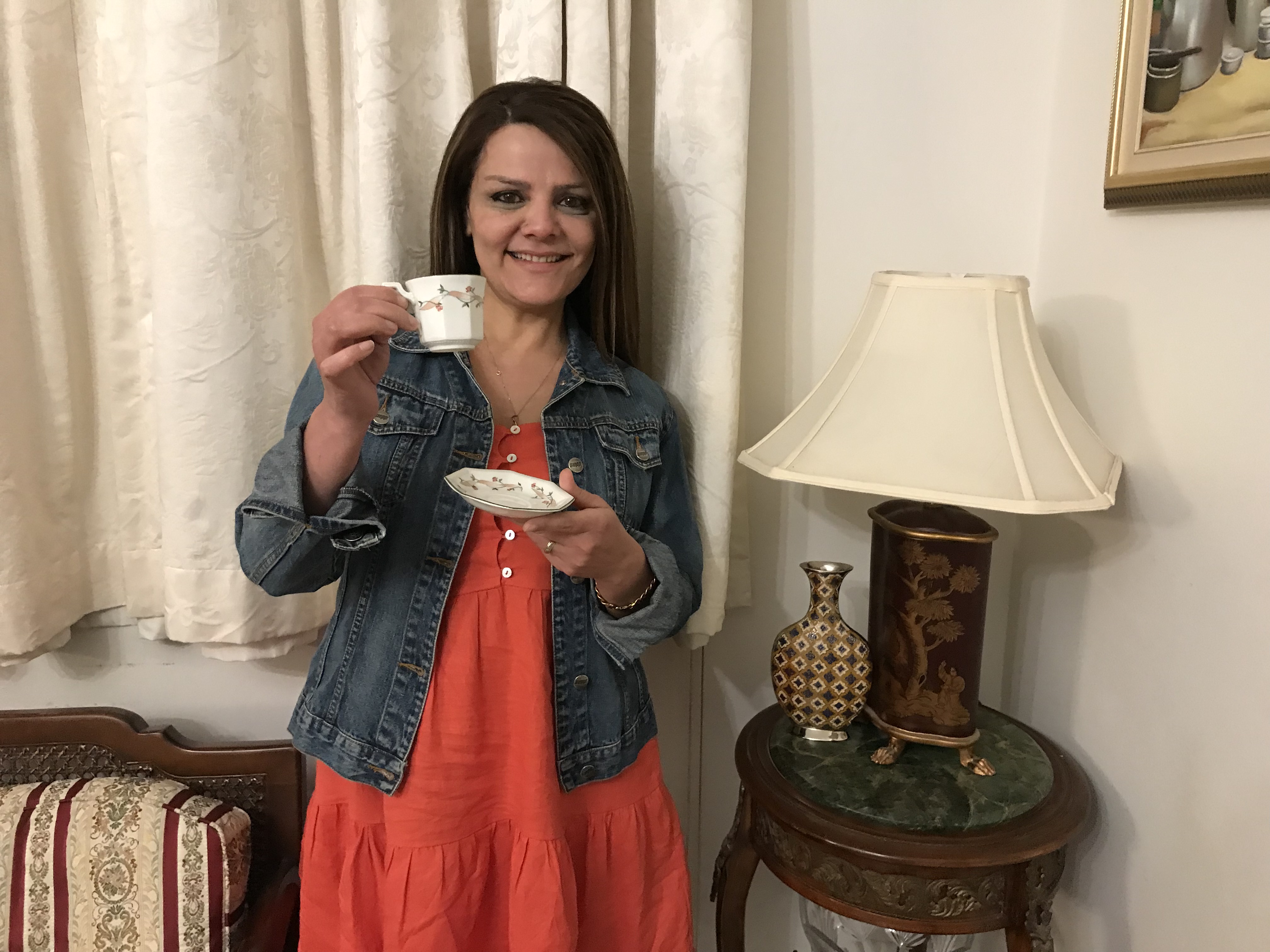
Always hospitable, Maya enjoys making Arabic coffee with cardamom. Photo: Elizabeth Masters.
“I tell them as long as you learn the English language and the culture, you can easily manage and live a good life in Australia. I say it’s good to contribute to the country you are now living in.”
Most women seek help to find a female doctor. Maya assists by organising guest speakers to explain available services, including domestic violence and mediation.
She understands the importance of language and values the role of television in learning English.
“I tell refugees to watch the English cartoons because the words are simple and easy to learn,” she says with her warm laugh. “I haven’t watched the Arabic channel for the 18 years I’ve been here.”
After university studies in Lebanon, Maya was employed as an accountant and also tutored college students. Here in Canberra she works in the attache office of the UAE Embassy, supporting citizens who study in Australia.
She also teaches classical Arabic at CIT Bruce and gives private lessons to members of the Australian Federal Police and government diplomats who may be posted to the Middle East.
Her husband Mohammed, who came to Australia as an aeronautical engineer in 1984, is her greatest fan and supporter.
“He inspires me and I can’t say I would be a successful woman without him,” Maya says.
Five years ago Mohammed encouraged her to nominate as president of the Islamic Council of ACT where she became the first female leader of any Islamic council in Australia.
“People were shocked, especially as I used to go to meetings without wearing the hijab,” she says. “I believe a person is a good Muslim when their actions help people, not just by wearing the hijab.
“I told them this and maybe because we’re in Australia, they accepted it straight away. Everyone was respectful and asked me for advice. I stayed for two years but didn’t re-nominate as I had so many other things to do.”
Now as president of the Arab Australia Friendship Society, she also organises social events for families including picnics for Muslim and Christian feast days. The society is planning to hire a hall and invite people for the end of Ramadan this year when they break their fast.
Maya is pleased Australia now knows more about her culture, with supermarkets even displaying “Happy Ramadan” signs.
What else would she like Australians to understand?
“I would like to tell them that Muslim people are good people, they are very peaceful. We are against all terrorists.”
Maya loves teaching Arabic to adults and inspiring interest in her culture and country’s history.
“I’d like people to understand that Lebanon is a friendly, hospitable country with so much heritage, such as the ancient Jeita caves and the Baalbek Roman temple complex. We also have very old mosques and churches. It’s no wonder so many thousands of tourists have visited over the years.”












